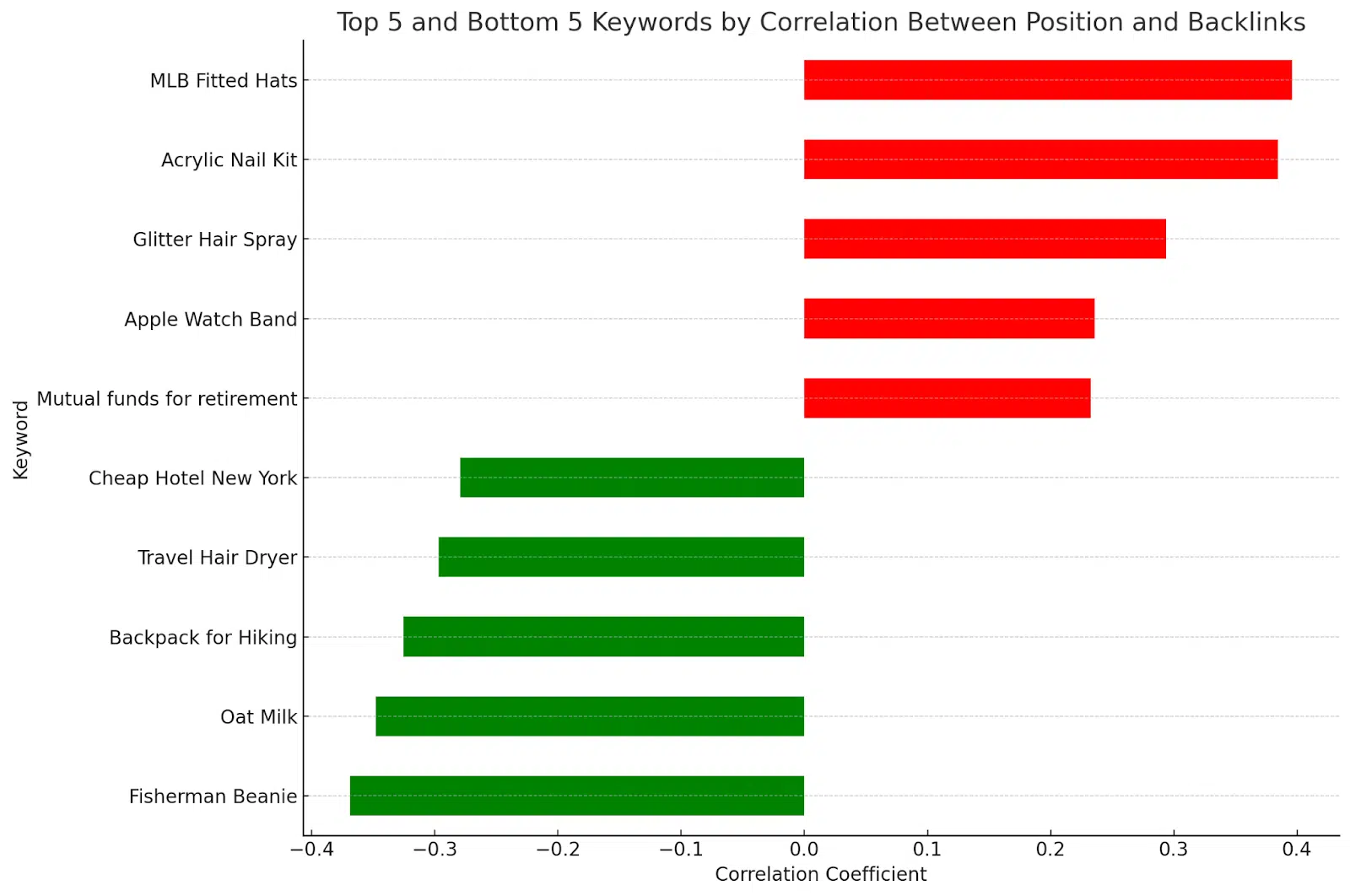The debate over the importance of links is a recurring theme in SEO.
Google’s Gary Illyes recently rekindled the debate around this topic when he said, “People overestimate the importance of links,” but links haven’t been among the top three ranking factors for some time. did not.
Statements like this one by Google have been made in the past, forcing SEO professionals and businesses to rethink their strategies.
This got me thinking about how important links actually are today. What does the data show?
To find out, we analyzed 100 random keywords across various categories and collected data on the top 100 ranking websites, including referring domains and backlinks. This comprehensive dataset consisted of over 10,000 rows of URL ranking data.
It’s important to note that correlation does not imply causation, especially considering Google’s stance on the ever-evolving nature of ranking factors. However, as we dig deeper into the data, we begin to see where links are more important as a category.
Data analysis and key findings
Given Illyes’ comment, I initially expected to find a moderate relationship between backlinks and rankings, but there is nothing to suggest that this is the key to improving rankings. was.
Perhaps for the first time in a while, the data are consistent with this hypothesis.
To perform this analysis, we categorized 100 keywords into specific categories. electronics, beauty and health, entertainmentmore.
In correlation analysis, higher values indicate a stronger relationship between two variables, and values closer to 0 indicate a weaker relationship.
In the context of our analysis, where the goal is to reach the top rank, the ideal score is -1. This means that as the number of backlinks increases, your ranking will either “drop” or move closer to #1.
Here are some takeaways from the data:
- There were no keyword groups or individual keywords above -0.4. This means that there are no datasets that are highly correlated.
- There were keywords and groups whose rankings actually decreased as the number of links increased (they are positively correlated as the number of ranks increases). However, again none exceeded 0.4.
- The groups with the highest correlations were: outdoors and sports and health and wellness.
- The groups whose links caused a drop in rank are: Home & Kitchen and E-commerce and online services.


- At the keyword level, “fisherman’s beanie” and “oat milk” had the highest correlation, and “MLB fit hat” and “acrylic nails” had the lowest correlation. (The graph below showing keyword levels graphs only the top five and bottom five.)


Get the daily newsletter search that marketers rely on.
Why Links Matter Today: Three Key Points
If you find that the correlation coefficient matches Google’s claims, what do you do with this information? How should you change or consider your own branded link profile?
Here are three takeaways and recommendations from this dataset that can help your SEO strategy.
1. Links are a great signal that users value your content
Google emphasizes that while links are not as strong a ranking factor as they have been in years past, they are still a valuable signal.
Think of these as indicators of user and website support for your content and products. If you see a significant increase in links to a particular blog post or product, it’s a sign that users value it.
Redirect your efforts accordingly, creating more content and products in that area, or ramping up your promotions.
Even if these links don’t necessarily lead to higher rankings, they provide important intent-based data for optimizing your time.
2. You should always evaluate your competitors and specific datasets
Our dataset with over 10,000 data points is important, but it’s not tailored to your brand or industry. Use this article as a guide to analyze your own data and gain insights.
Examining the top 100 keywords provides clarity on the competitive landscape and allows for more focused strategy development.
If your space has significantly more links to other brands, it’s a sign of a challenge, but remember that links aren’t the only ranking factor. Instead of getting overwhelmed, use this data to inform and refine your strategy.
3. Fundamentals has been, and always will be, the north star of organic search.
The original purpose of SEO was to improve brand rankings, and this goal is still important today.
However, the focus has shifted to providing a great user experience, as evidenced by Google’s EEAT framework: Experience, Expertise, Authority, and Trustworthiness.
EEAT emphasizes the importance of user experience and value. Rather than advocating link acquisition as the primary strategy, they emphasize the importance of building websites that increase the value of your product or service to the end user.
This user-centered approach should guide you.
Reevaluate the role of links in your SEO efforts
I found this dataset interesting because it spans a variety of industries and consistently suggests that while links are important, they are not the only determining factor.
I will closely monitor how the data evolves with larger language models that incorporate more links. This can reshape the link value and website visibility.
These are exciting times for search, characterized by innovation, and data will be your compass to gauge the changing landscape. We look forward to seeing how links continue to impact rankings in this next phase.
The opinions expressed in this article are those of the guest author and not necessarily those of Search Engine Land. Staff authors are listed here.


